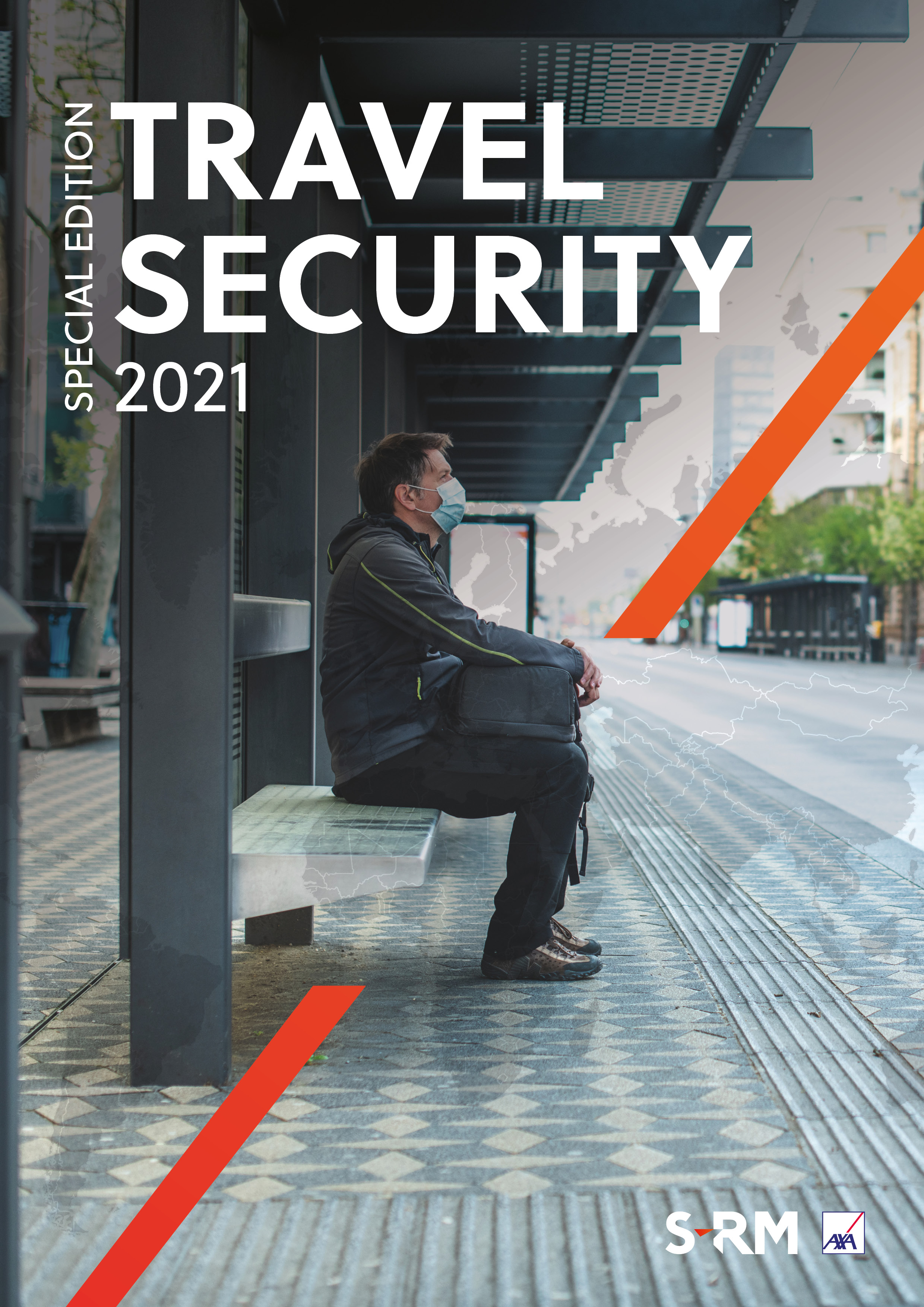In some countries, the Covid-19 pandemic has allowed criminal groups to diversify and expand their operations. This could threaten foreign businesses and staff in affected countries in the coming year, writes Erin Drake.
The Covid-19 pandemic and associated lockdown measures have affected many organised criminal groups’ abilities to carry out conventional crimes like drug trafficking, kidnap for ransom and extortion. Larger cartels have used the pandemic as an opportunity to bolster their public image and further embed themselves in their community, tightening their grip over areas that governments have struggled to reach due to lack of resources and capacity. Smaller groups more significantly affected by the loss of revenue have been forced to diversify their activities to stay afloat. Such efforts threaten to drive a deterioration in the security environment in the coming year, and increase the potential for foreign personnel and businesses to be affected by criminal activities.
HARD-HIT
Extortion and kidnap for ransom activities were most severely affected during lockdowns. Street gangs who rely on physically collecting ‘protection fees’ from small businesses and cash-only vendors in their area – like the Japanese Yakuzas, and the maras in Honduras, Guatemala and El Salvador – have struggled to operate under restrictions on movement and commercial activities. The Global Initiative against Transnational Organised Crime reported a 9 percent and 17 percent drop in reported extortion cases in Guatemala and El Salvador between March 2019 and March 2020, respectively. Nigerian and South African drug cartels have struggled to distribute their products, as commercial flights often used to transport drugs were grounded for most of 2020. Land border closures have also affected some Mexican cartels’ ability to shift drugs into the US.
ADAPT TO SURVIVE
Lockdowns around the world have placed pressure on smaller cartels and street gangs to increase the diversity and range of their criminal activities. This is evident in the proliferation of online extortion scams, including virtual kidnappings. Some gangs, like those operating in central Cape Town, have even changed their traditional target base from nightclubs, which were closed under lockdown, to other commercial activities like coffee shops and property developers. To survive and make up for a shortfall in profit, these smaller groups will need to double down on traditional activities of extortion, kidnap, armed robbery and trafficking when lockdown restrictions are lifted and local businesses reopen. They may also look to target local nationals and businesses who are eligible for government loans and Covid-relief subsidies. Financial losses could further push them to make higher extortion demands on such businesses. However, these groups still largely lack the capabilities and sophistication to target major international companies, and will continue to focus their efforts on local nationals and businesses who are less likely to draw media scrutiny and prompt security operations.
GANG VIOLENCE AND EXTORTION IN SOUTH AFRICAIn April, local Cape Town gangs announced a ceasefire and delivered food and aid parcels to poverty-stricken areas. However, as lockdown restrictions have eased, there has been an increase in violent clashes between gangs, as well as a drastic uptick in extortion of local township businesses. Anecdotal reports indicate that gangs are also increasingly extorting people engaged in short-term home rental services in their areas of operation. JAPAN’S STRUGGLING YAKUZAJapan’s lower-ranking Yakuza members have reportedly struggled to pay dues to their employers, as many businesses from which they typically collect protection fees – including local restaurants and nightclubs – have opted to remain closed despite no government-imposed lockdown. Authorities have indicated that in Tokyo, such groups may increasingly try to target locals as soon as they collect their JPY 100,000 (USD 960) Covid-19 relief payment. |
Competition over resources has driven many larger cartels – particularly in Mexico – to fragment, driving an escalation in violent clashes between smaller groups for territorial control. In South Africa, clashes between rival street gangs have also increased as the government decreased restrictions on movement and gatherings. In the coming months, increased competition over resources, members and trafficking routes may exacerbate inter-cartel clashes. While such incidents do not directly target foreign businesses or personnel, there is an elevated threat for damage to assets near such clashes, which often take place in populated urban centres. Bystanders are also regularly caught in the crossfire.
MAKING THE MOST OF IT
While smaller groups have needed to adapt, the pandemic has not significantly altered the operations of large, well-established cartels, like Mexico’s Cártel de Jalisco Nueva Generación (CJNG) or the more prominent Italian criminal groups. Such organisations have the financial reserves, resources and credibility to weather the storm. Instead, they have used the opportunity to enhance their public image among their communities by handing out aid and enforcing curfews. Splinter groups in Mexico’s Cartel del Golfo distributed boxes of rice and beans, while the CJNG provided people with cooking and household supplies. In South Africa, two prominent gangs declared a ceasefire, while in southern Italy’s regions of Campania, Calabria, Sicily and Puglia, various organised crime groups, including the Sicilian Mafia, distributed free food packages to poor families. Gangs have also used the lockdown period as an opportunity to recruit new members affected by unemployment and poverty. In Kenya and South Africa, school closures and the decline in legitimate employment enabled gangs to grow their ranks by recruiting younger members.
BUSINESS AS USUAL FOR (some) MEXICAN CARTELSLarge cartels such as the CJNG and the Sinaloa cartel were only marginally affected by Mexico’s lockdown. With their primary focus on trafficking operations, these cartels simply identified alternative methods of smuggling chemicals and narcotics in and out of the country, and significantly inflated the prices of their products. The CJNG also absorbed smaller criminal groups into their organisation to expand their control in states bordering their traditional jurisdiction. Such activities are largely within the remit of typical cartel operations, although the pandemic has enabled them to take control of territory previously held by smaller cartels that have been weakened by the pandemic. |
Efforts to consolidate their power, foster community support and grow their ranks have increased larger gangs’ ability to expand their areas of operation. This will likely result in more local businesses being extorted, used for laundering and falling victim to loansharking, and more high-profile local nationals being kidnapped for ransom. Such groups may be capable of extorting large foreign firms or kidnapping foreign personnel. However, the benefit they derive from domestic economies stimulated by foreign investment largely disincentivises them from setting their sights on international players.
ITALY’S CAMOrRA SYNDICATEThe Camorra is one of Italy’s oldest and largest organised crime groups, focusing on extortion, racketeering, trafficking and laundering. During the pandemic, the group used the opportunity to extend loans to failing businesses at higher loans, and through which they can launder money. If victims cannot repay loans, the group takes over management of the business, and continues to use it for laundering. |
MORE OF THE SAME in 2021
Looking ahead, criminal groups will continue to adapt to constraints and exploit opportunities as the adverse economic and social impacts of lockdowns persist. As the pandemic continues to strain state resources, such as law enforcement capabilities, such groups will leverage these factors to expand and diversify their operations with increased impunity. More security officials could be encouraged to work with cartels, as criminal groups are often able to pay a far higher salary than the state, further enabling a culture of impunity.
However, while the pandemic has prompted some larger cartels and smaller criminal groups to further their goals, it has not signalled a fundamental change in the nature of such groups or the way that they operate. The pandemic has simply provided a more permissive operating environment. In most cases, criminal groups will stick to targeting local businesses and nationals as they have always done. While foreign companies and personnel will not be the primary targets of these groups’ post-Covid strategies, they will be increasingly vulnerable to incidents of extortion and kidnapping, particularly by smaller, opportunistic groups, as they continue to exploit the deteriorating security environment left by the pandemic.




 Email Erin
Email Erin





 @SRMInform
@SRMInform
 S-RM
S-RM
 hello@s-rminform.com
hello@s-rminform.com

